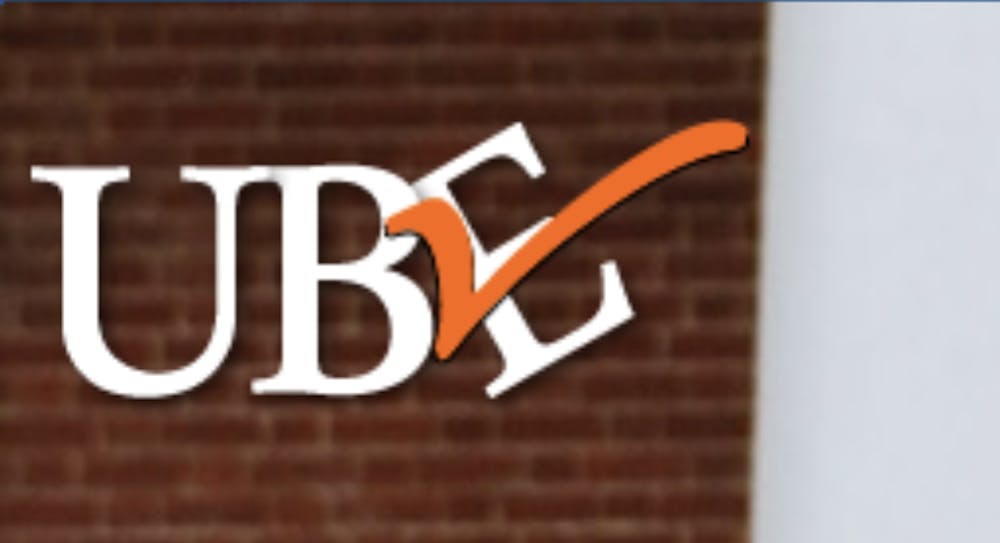After extensive deliberation regarding alleged violations of endorsing procedure policies, the University Board of Elections disclosed Thursday that two violations occurred in the 2020 election of Student Council president, vice president for administration and vice president for operations. However, investigators from UBE’s executive board found the violations did not impact the outcome of the election, and therefore did not require further action.
During a live candidate forum in late February, third-year College student Hunter Wagenaar, then a candidate for Student Council president, alleged that he was unfairly questioned during an endorsement interview by someone close to his opponent’s campaign, and that a member of the opposing ticket slandered him to the leader of an endorsing organization. He said these violations were a major reason behind the decision to end his candidacy.
Wagenaar was running against third-year College student Ellen Yates, who then served as Student Council’s VPA. Yates was elected president alongside Shefalika Prasad, incumbent VPO and third-year College student, and Darynha Gnep, third-year Curry student and current VPA.
UBE’s rules and regulations specify that endorsing organizations’ selection process must provide “equal opportunity to all eligible candidates,” and that candidates may not interfere in any endorsing organization’s decisions.
In investigating an endorsing organization’s “inappropriate questioning” of a candidate, UBE revoked the accused organization’s endorsements for Student Council president, VPA and VPO, according to outgoing UBE Chair Mason Fuller, a fourth-year College student. Other than revoking the endorsements, no further action was deemed necessary by UBE.
The second investigation pertained to a candidate’s interference with endorsements — while there was a violation, UBE ruled that the candidate’s actions were unintentional and were not found to impact an endorsing organization in their decision-making.
“Though a violation did occur, the violation was unintentional and their actions had no effect on the outcome of any decision made,” Fuller said. “Therefore, UBE decided the candidate would not be removed from the ballot.”
According to Fuller, rather than take punitive action, UBE passed along the information to relevant bodies to take appropriate action as necessary. UBE cannot disclose the organizations that will be given the detailed findings on the candidate’s behavior for further action, according to Spencer Whitney, a third-year Commerce student and UBE’s outgoing vice chair for candidates.
“After a prolonged period of reflection and discussion, we determined that since the rule violations were all unintentional and did not affect the outcome of the elections, it is not just for us to comment on the involved parties or their affiliates,” Whitney said.
Whitney added that UBE’s investigation into all campaign violations consisted of interviewing all involved parties to determine whether a violation truly occurred, after which the executive board would vote on whether they believed the violation was intentional and significant to the outcome of the election.
“In every investigation, our goal was to gather a fair and balanced account of what happened, and to ultimately give affected parties the benefit of the doubt unless there was strong evidence to the contrary,” Whitney said.
Whitney said he cannot recall an instance in recent memory in which a rule violation caused a candidate to be removed from the ballot, as candidates tend to be receptive to warnings from UBE against prohibited behavior — this only happens, he said, when candidates fail to submit documents necessary to appear on the ballot before the deadline. In necessary cases, UBE’s rules and regulations specify that candidates may appeal a UBE violation hearing’s decision to the University’s Judicial Review Board. Additionally, UBE may serve as a complainant to the Honor or University Judiciary Committees if a candidate’s behavior violated the University’s Honor Code or Standards of Conduct.
Following UBE’s official statement on the violations, Wagenaar expressed dissatisfaction with the timeframe over which the investigations were conducted. He brought the first violation to UBE’s attention Feb. 14, and the second he announced Feb. 24 during the public forum.
Wagenaar said that although UBE expressed to him that the situations would be resolved before voting — which occurred Feb. 26 through 28 — this was not the case.
“There were these huge gaps in what they were saying was going to happen but then what actually happened, and I think that's a huge issue,” Wagenaar said.
According to Whitney, UBE had reached a conclusion on Wagenaar’s first allegation before the deadline but was unaware of the second allegation until it was announced publicly during the candidate forum. This gave UBE a 20-hour window between becoming aware of the violation and having to finalize the ballot for voting, which he said made it challenging to conduct a thorough investigation that would address the complexity and nuance of the claims in a timely manner.
UBE opted not to issue a public statement on the status of either investigation until both were conclusively resolved.
“Since we learned about additional allegations during the debate, we decided that the best course of action was to conclude our investigation about all of the allegations before we publicly issued a statement,” Whitney said.
Yates, Prasad and Gnep declined to comment for this article.







